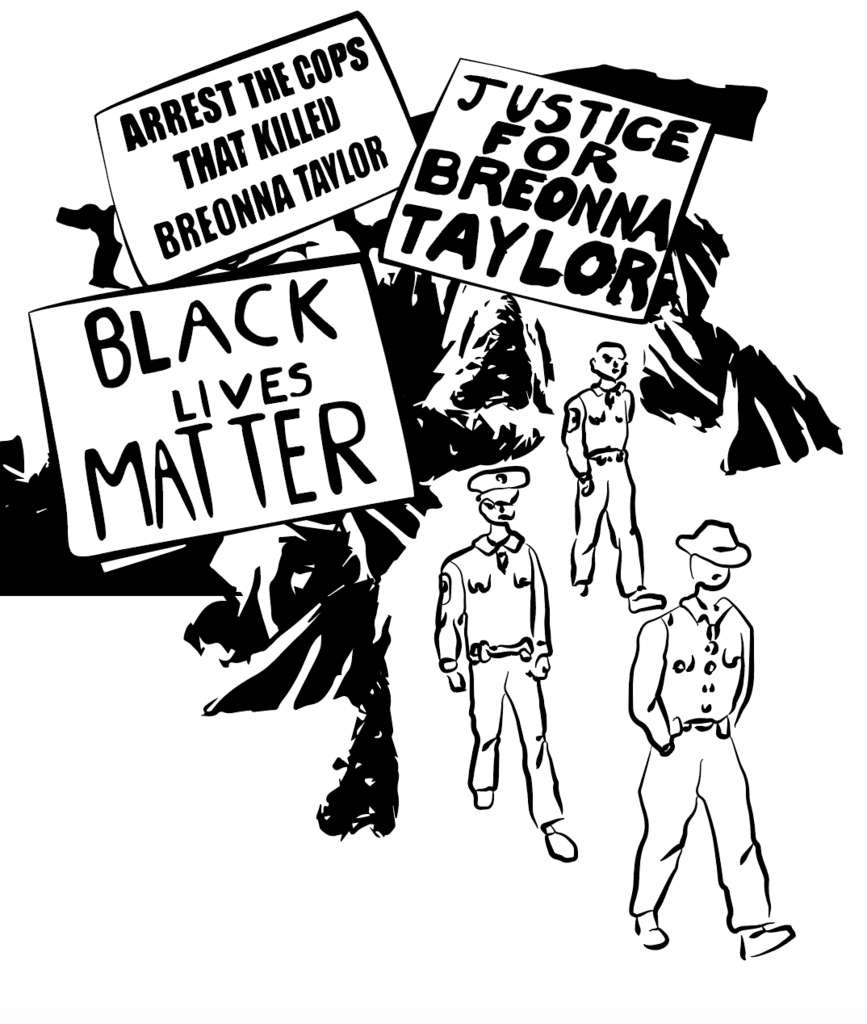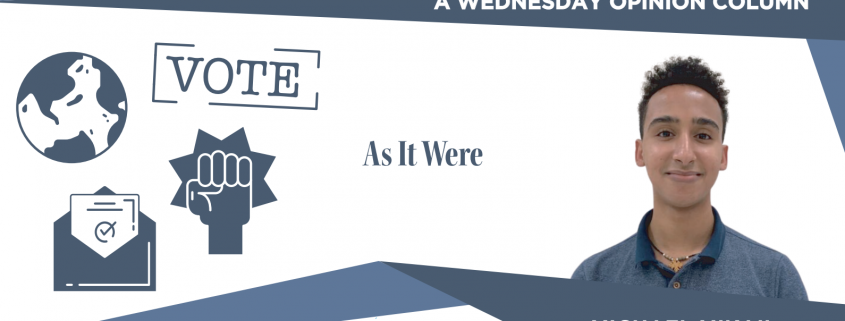As It Were: Systems of oppression must be pulled apart from their roots

In the same way the system was not designed to protect Breonna Taylor, the system was not designed to find justice for her, either.
As reported by The New York Times, the police came to Breonna’s Taylor’s door because her ex-boyfriend, Jamarcus Glover, who they believed to be involved in the drug trade, had once-upon-a-time received packages at that address. That was all it took for a judge to approve a “no-knock warrant,” allowing them to break into the home of Taylor, an EMT with no criminal history.
Even though the judge had approved a “no-knock,” the officers’ orders were changed to “knock and announce” — meaning the officers had to identify themselves. The officers involved insist that they did just that, were met with no response and were forced to break down the door. The evidence indicates otherwise. After breaking down the door, the police were met with defensive shots from Taylor’s boyfriend Kenneth Walker, for which they returned a hail of blind gunfire — five shots of which ended up killing Taylor.
Taylor’s boyfriend Walker, who shared the apartment with her that night, insists that the police did not announce themselves. His account is backed up by the fact that he, a man with no criminal history, shot at the would-be-intruders with his legally owned firearm, a reaction that any armed, reasonable person might have upon a suspected break-in. No drugs or cash were found in the apartment — this was not a man with any reason to shoot at the police.
Compounding the evidence, Walker immediately called 911 in hysterics, crying, “I don’t know what’s happening, someone kicked in the door and shot my girlfriend.” Further, the police incident report does not paint a picture of a force committed to truth — they listed Taylor’s injuries as “none” (she was shot five times) and noted that the officers had not used force to enter the apartment (they broke down the door with a battering ram).
In the days leading up to the shooting, while the police were plotting the raid, she was working overnight shifts at the hospital’s emergency room. The night the police killed her had been her date night. She and her boyfriend had dinner at a steakhouse and capped the night off with a movie in bed. The last thing she said before she fell asleep was “turn off the TV.”
I think it is important to note that Taylor did not die in her sleep. By the moment of her death, she had been woken by the breaking down of her door by who she believed to be intruders and the shots fired by her boyfriend to protect them from the would-be-intruders. She was very much awake for her final moments.
Even if the raid had not culminated in Taylor’s killing, the factors leading up to the raid seem designed to terrorize a young Black woman. A judge signed a no-knock warrant for the home of a woman with no criminal record who was only vaguely and tangentially related to the supposed investigation. The raid occurred only after the main suspect in the larger investigation was already in custody. The police waited outside her apartment until the dead of night when they knew she was asleep before breaking down her door to execute the warrant. Throughout the process, Taylor was awarded no grace, not even a passing thought to her humanity. The police acted as if she were an enemy combatant in war.
The chain of events defies logic not only because a few cops chose brash militarism over the semblance of peace that Taylor and the community might have been afforded had the officers waited until the morning, obeyed their orders to knock and announce before executing their warrant, but also because their actions were sanctioned at every level of the chain of command. The system not only allowed but instructed the police to terrorize Breonna Taylor in her home.
What is arguably more frightening and disturbing is that, under the doctrine of qualified immunity (legal protection that shields government officials, including law enforcement officers, from liability for damages in civil suits), it seems that the actions of the officers involved will withstand legal scrutiny. Given the fact that Walker shot first, it is highly unlikely that Taylor’s killers will ever be held accountable, as police officers are legally afforded expansive discretion in their use of excessive force when there is an imminent threat, such as gunfire.
That is why the grand jury’s decision not to indict any of the officers for Taylor’s death comes as no surprise to me. Of course, there were complicating factors — the prosecutor’s office being led by a 34-year-old, President Donald Trump-endorsed, Mitch-McConnell-acolyte contrasted with the public pressure campaign calling for the arrest of the officers involved. But fundamentally, the system that killed Breonna Taylor was never going to prosecute its own agents of violence.
And in truth, the buck should not stop at the officers who were directly involved in the shooting. They acted with a clear disregard for human life, but that was their job. We will never be able to implement meaningful reform and change by targeting individual actors within a rigged system. Breonna Taylor’s death is the inevitable result of an increasingly militarized police force and a law enforcement culture that dismisses Black life and death.
Michael Mikail is a senior writing about race, culture and politics. His column, “As It Were,” runs every other Wednesday.

